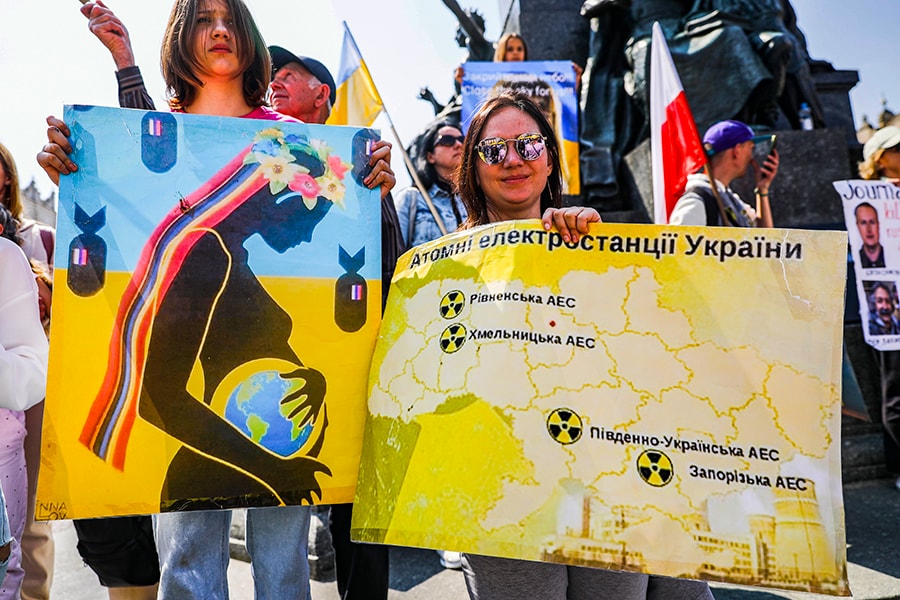
The information war in Ukraine is far from over
Ten weeks into the war, many Russians seem to accept Putin's narrative. Around the world, many countries remain on the sidelines or, like China, are on Russia's side
 Ukrainian citizens and supporters attend a demonstration of solidarity with Ukraine at the Main Square, demanding NATO to close the sky for Russian planes over the territory of Ukraine following Russian invasion. Krakow, Poland on May 2nd, 2022. (Photo by Beata Zawrzel/NurPhoto via Getty Images)
Ukrainian citizens and supporters attend a demonstration of solidarity with Ukraine at the Main Square, demanding NATO to close the sky for Russian planes over the territory of Ukraine following Russian invasion. Krakow, Poland on May 2nd, 2022. (Photo by Beata Zawrzel/NurPhoto via Getty Images)
If the first casualty of war is truth, then the corollary in Ukraine is that information is the first battlefield.
That was where the war began, in early 2022, weeks before Vladimir Putin sent the first rockets, armored vehicles and troops into Ukraine, when he claimed that the massive buildup of troops along Ukraine’s borders was but another military exercise. And that was where the United States and its allies scored their first victories, when they made public intelligence anticipating the invasion and the pretext Putin would use for it.
Then, when the invasion began in February, Ukraine’s president, Volodymyr Zelenskyy, opened a second information front. He donned a soldier’s olive-drab T-shirt and issued a torrent of defiant tweets, speeches and images from devastated villages, much of it targeted at Russian audiences. His metamorphosis from a relatively unpopular president to a David defying Goliath has been instrumental in solidifying popular, military and economic support for Ukraine in the United States and Europe.
In these first information battles, the Americans and Ukrainians showed that they had learned the lessons of 2014, when Russia had the upper hand in propaganda, assaulting Crimea and eastern Ukraine while claiming to be responding to pleas from Russian-speaking residents. The United States and Ukraine have also been greatly aided this time around by the fact that the evidence of the invasion and its brutal consequences has been so well documented.
But the information war, like the physical war, is far from decided. Ten weeks into the war, many Russians seem to accept Putin’s narrative. Around the world, many countries remain on the sidelines or, like China, are on Russia’s side. While Washington’s public comments have served to bolster the Ukrainians and rally their allies, some of those comments have played directly into Putin’s claims of a malign America determined to neuter Russia, as when President Joe Biden said of Putin, “This man cannot remain in power,” and Defense Secretary Lloyd Austin declared that America’s goal is a “weakened” Russia.
©2019 New York Times News Service







